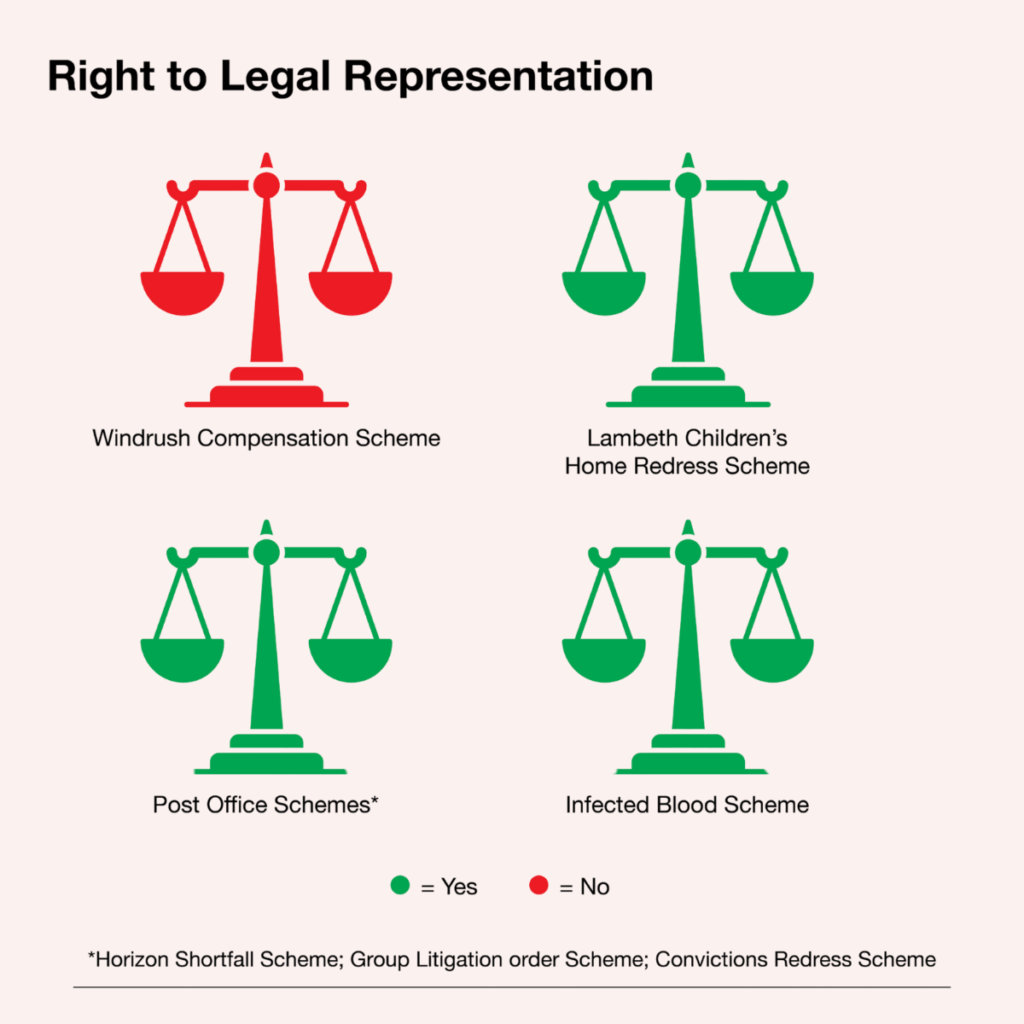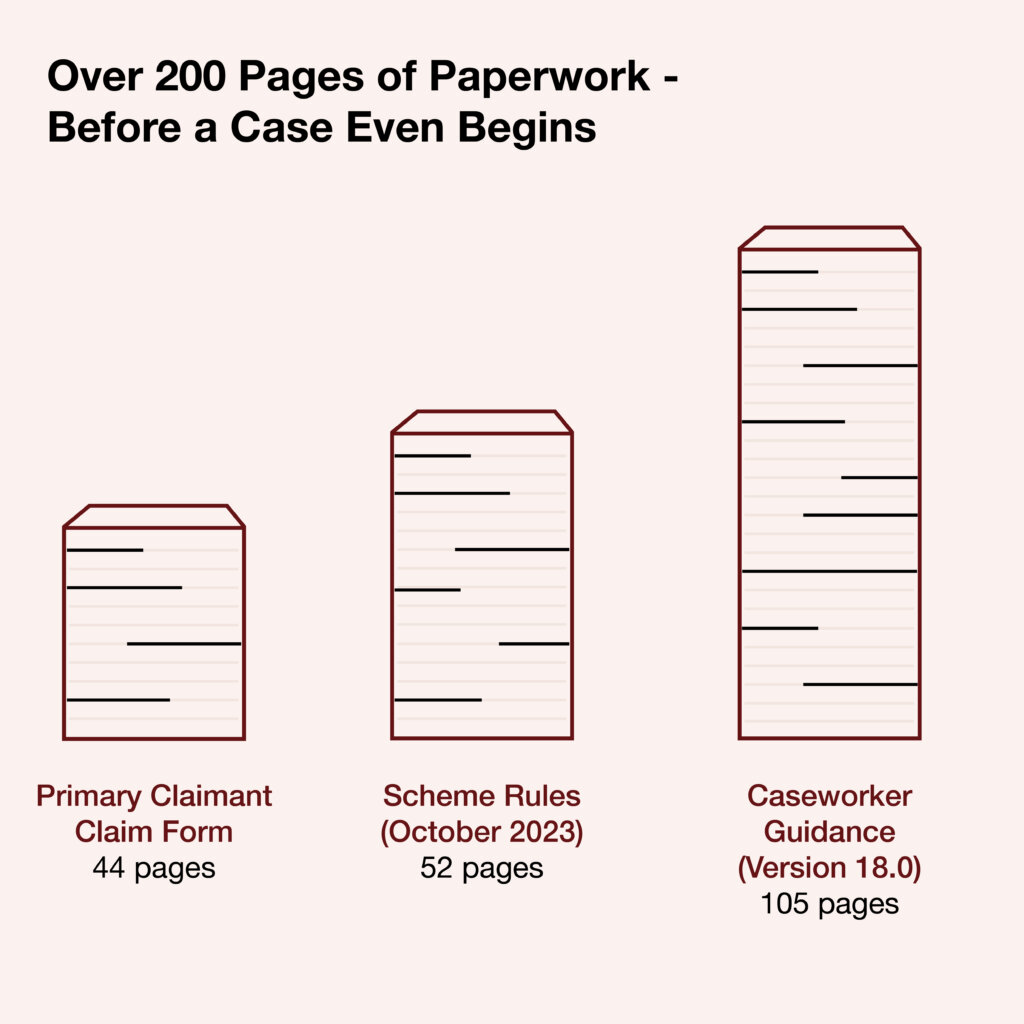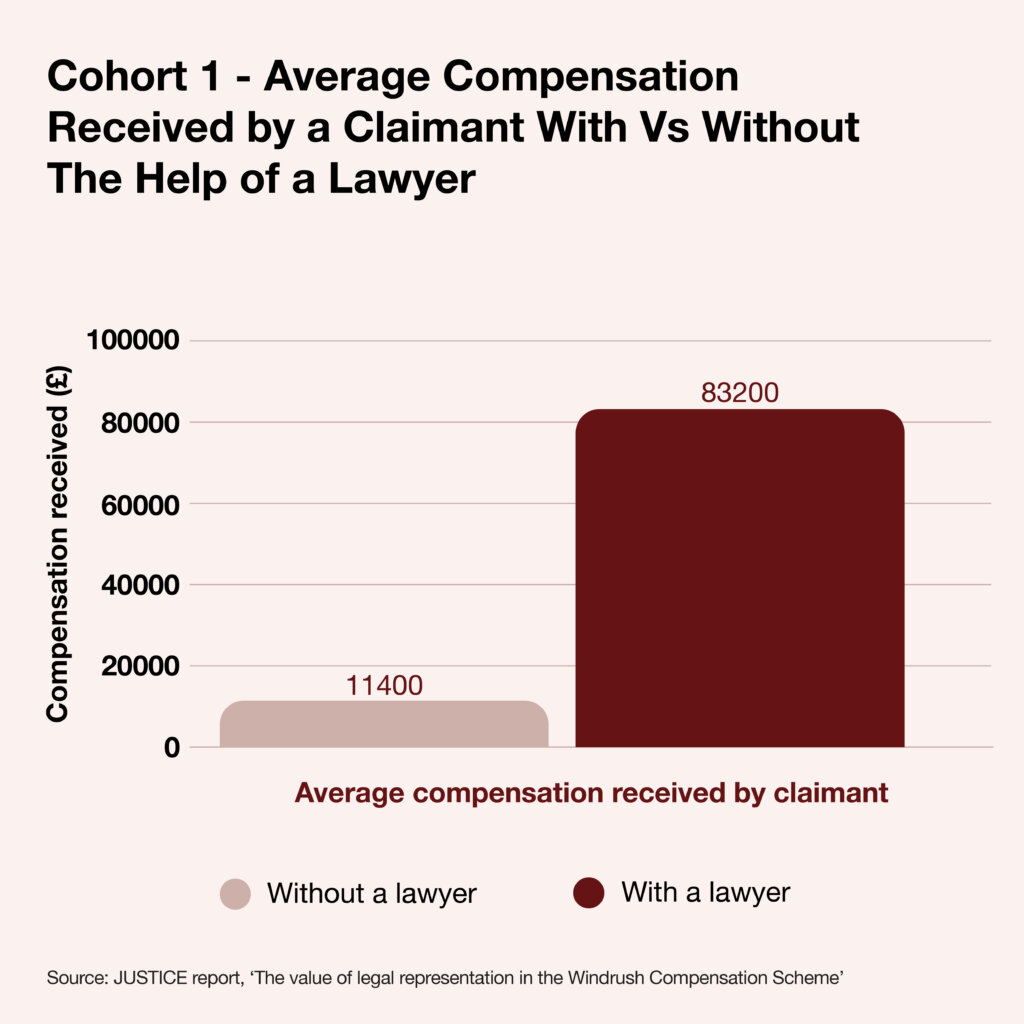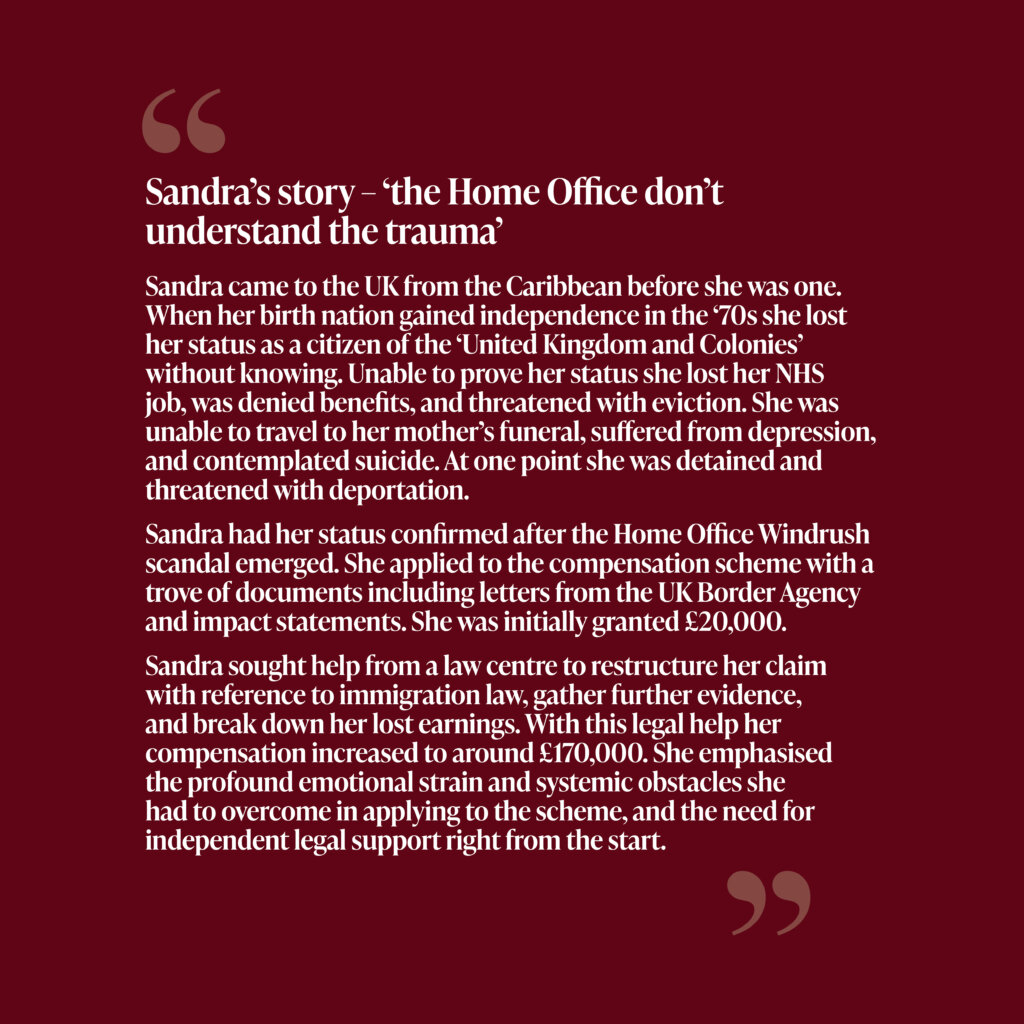Survivors of the Home Office Windrush Scandal are receiving drastically less compensation than they deserve. Giving them access to free legal advice can change this, finds this JUSTICE report.
This research, produced by JUSTICE, the University of Sussex, and Dechert LLP, reviewed extensive case files and interviewed claimants and lawyers. It shows legal advice makes a big difference to both the amount of compensation awarded to claimants by the Windrush Compensation Scheme and to claimants’ experience of going through the scheme.
Click here to read the full report
The complexity of the Windrush Compensation Scheme:
In contrast to all Post Office compensation schemes and the Infected Blood compensation scheme, there is no funded legal advice for Windrush claimants. This leaves a gap that a patchwork of legal aid centres and charitable legal schemes are unable to fill.

Lawyers who helped Windrush Scheme claimants suggest the attitude of Home Office caseworkers is designed to put off claimants and limit awards. The Home Office claim the process is simple and that individuals do not need legal help to apply. Yet lawyers describe the scheme as ‘torturous’ and ‘misery on top of misery’ with a pervasive ‘culture of disbelief’ causing delays and unreasonable refusals.
It is very difficult for claimants without legal help to know whether the compensation offered is suitable or to spot issues in how the Home Office assesses their claim. The application success rate for this scheme is low, with two thirds (66%) of claimants denied compensation, and lawyers are concerned that many claimants will have accepted low or nil awards without realising there have been errors or knowing how to challenge them.

Claimants and lawyers point to the complexity of the application process, where rules and guidance extend to over 200 pages, as well as the need for specialist immigration knowledge, and the ability to obtain historic evidence as reasons for the difference in outcomes with legal help.
The difference made by legal advice:

Claimants who apply without legal advice are frequently offered no or little compensation. But with access to legal advice, awards go up significantly:
Claimants in the study received an average of £11.4k when they applied for compensation by themselves but this increased to an average of £83.2k once they had legal advice.
One claimant went from being refused any compensation to being awarded £295,000 with legal assistance; another had her award go from £20,000 to £170,000 once she had charitable legal support.
Survivor experiences:
Claimants spoke out strongly on their experience of the scheme. One person describes feeling treated like a ‘nobody’ while another said they felt ‘set up to fail’.


Read more survivor experiences in the full report.
Expert perspectives:
Stephanie Needleman, Legal Director of JUSTICE:
“If the state wrongly upends lives and tears families apart, it must repair the damage as far as possible. Yet rather than righting the wrongs they caused, the Home Office demands survivors struggle alone with a compensation scheme so complex that people cannot apply for what they deserve without legal help.
“Claimants need access to funded legal advice at every step – from making sense of the Home Office’s overwhelming paperwork to appealing when their claim is wrongly rejected.
“The Home Secretary herself previously called for funded legal assistance, recognising that this would benefit claimants and improve Home Office efficiency – a win-win.”
Tim Bowden of Dechert LLP:
“The Windrush Compensation Scheme is undeniably complex. It requires an understanding of over 200 pages of rules, guidance and application forms in order to make an informed claim. This prevents claimants, especially the many elderly and vulnerable people damaged by this scandal, from being able to effectively present their cases and obtain the compensation they are entitled to.
Funded legal advice under the scheme would be a huge help to claimants, but would also make the scheme more efficient, improve the quality of decision-making so that more claimants are offered the correct compensation first time around, and enable the government to deliver on the promises it has made to Windrush survivors.”
Dr Jo Wilding, Associate Professor in Law at the University of Sussex:
“The government take has been that lawyers would just complicate the compensation scheme, but this scheme is already complicated and victims need evidence to prove their cases, which is really hard to get after so much time.
“This research enabled us to show exactly what lawyers do in these cases, acting as a buffer between the victim and the Home Office, finding creative ways to access long-lost documents and making legal arguments about how the evidence meets the rules, which claimants clearly couldn’t do themselves.”
